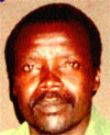Sudan urged to seize Ugnadan rebels leader
 Oct 7, 2005 (KAMPALA) — Uganda urged Sudan on Friday to seize Ugandan rebel Jospeh Kony from his hideout on its soil and send him to face justice at an international court for a string of atrocities including the kidnap and murder of children.
Oct 7, 2005 (KAMPALA) — Uganda urged Sudan on Friday to seize Ugandan rebel Jospeh Kony from his hideout on its soil and send him to face justice at an international court for a string of atrocities including the kidnap and murder of children.
“Now the whole world will be searching for Kony,” Ugandan Defence Minister Amama Mbabazi told a news conference, where he named Kony as one of five rebel Lord’s Resistance Army (LRA) commanders sought by the International Criminal Court (ICC).
“I trust the Sudanese, who obviously know where Kony is, will effectively execute that warrant.”
Mbabazi said the other four LRA men for whom the ICC issued warrants of arrest last week were Kony’s number two Vincent Otti, Okot Odiambo, Raska Lukwiya and Dominic Ongwen.
Only four were actually “arrestable”, he said, in reference to a Ugandan army report that Ongwen was killed on September 30 in a gunbattle with troops in northern Uganda.
The warrants are the first issued by the court, the first permanent global tribunal set up to try individuals for genocide, war crimes and systematic human rights abuses.
Nineteen years of warfare by the LRA has devastated northern Uganda and uprooted more than 1.6 million people. More than 20,000 children have been kidnapped by the rebels and forced to become fighters, porters and sex slaves.
U.N. Secretary General Kofi Annan hailed the issuing of the ICC warrants, saying on a visit to Switzerland that the court’s move was an important step towards helping Africa end conflict.
“For the ICC to send out a message to would-be warlords that it is no longer acceptable, that they have to be accountable and (will be) prosecuted, is a very powerful message. And let the law take its course!” he said.
KHARTOUM
The ICC has no police and to arrest suspects must rely on Uganda’s army and the help of neighbouring states. Otti recently fled from Sudan to the Democratic Republic of Congo (DRC).
Western analysts have accused elements in the Sudanese military of supplying Kony — pronounced “cone” — and his fighters, raising doubts over Khartoum’s willingness to act on the ICC warrants.
Khartoum denies it supports the LRA. Kony, who rarely talks to the media, once told a Sudanese magazine LRA armed action “cleansed” his Acholi tribe of pro-government sympathies.
Under a 2002 deal with Kampala, Sudan has allowed Ugandan troops to hunt the LRA in a lawless stretch of the south up to a so-called Red Line about 100 km (63 miles) into Sudan.
Mbabazi said Kampala remained ready to act.
“We are engaging the Sudanese government on this matter. If they allow us to go, we will arrest Kony no doubt,” he said.
Mbabazi said that as of Thursday night, Otti was 90 km (56 miles) northeast of Aba town in the Democratic Republic of Congo (DRC), close to the Sudan border.
He said Kony remained camped near the Sudanese town of Liria, 60 km (40 miles) north of the Red Line. Raska and Odiambo were both believed to be in southern Sudan with Kony, he said.
Uganda has long offered an amnesty to all LRA fighters. In recent years hundreds have taken advantage of the offer, under which their crimes are forgiven and they resettle in the north.
Mbabazi said the amnesty offer still held. He added: “The government of Uganda will treat the LRA who remain (who are not sought by the ICC) as people we can negotiate with, and people who can benefit from the amnesty.”
The highest profile LRA rebel to accept amnesty was Brigadier Kenneth Banya, captured in July 2004. He was Kony’s right-hand man for 17 years and many in the north say he is lucky to have escaped the prospect of ICC prosecution.
(Reuters)
